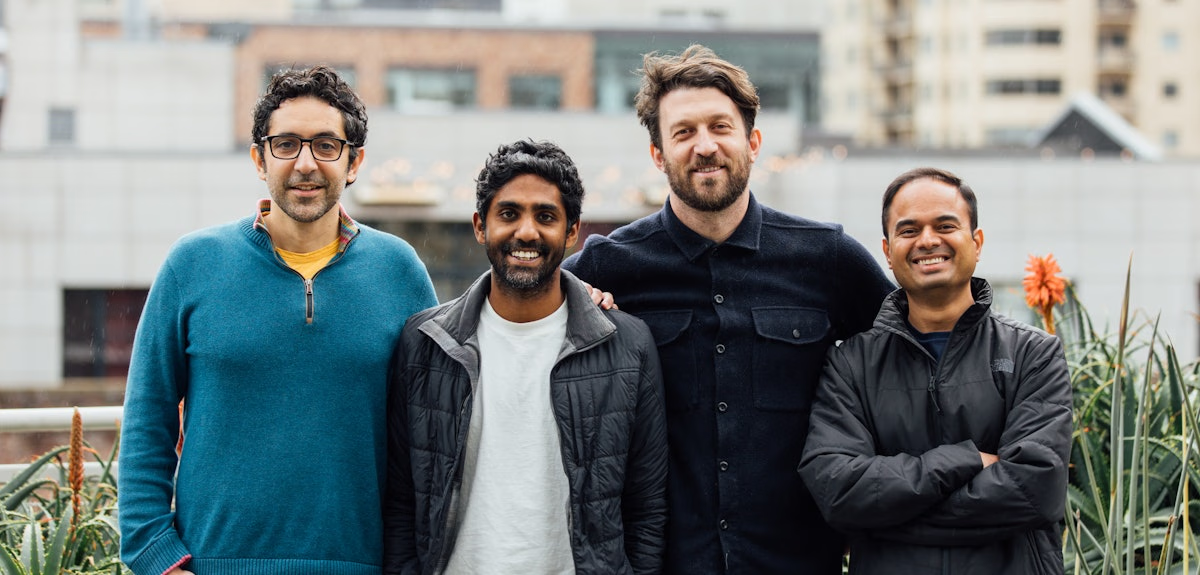
Spotlight On: Ajay Prakash, EntryLevel
Blackbird’s monthly chat with talented leaders and rising stars in our community, this month with Ajay Prakash, founder of EntryLevel.
Helping one billion people across the world find meaningful employment might sound like an impossible goal, but that's exactly why it motivates Ajay Prakash. He and his team at EntryLevel have a plan to turn this ambition into reality, by offering virtual experiences at the best companies, to help students, career transitioners and job seekers get meaningful experience in specific roles.
They're not wasting time, either. Fresh off EntryLevel's announcement that it's helped more than 33,000 people through its virtual experiences in less than six months, we caught up with Ajay to learn more about his founder journey, breaking the "no-experience, no-job" cycle and quantifying outrageous ambition.
B: Walk us through the key moments that led you to found EntryLevel. What was the initial idea and how did it develop?
AP: I technically started in this space 7 years ago where I was reskilling engineers into new jobs through my organisation, Real Skills. The idea back then was to run assisted projects where companies and students work together so companies could hire based on what the student could do, not what they have done, and we helped over 6000 engineers through this program.
After our raise in November 2020, we started working on recruitment and data. The idea behind the recruitment piece was to create a way to hire based on merit, rather than resumes. However, early prototyping proved to be a difficult proposition for companies and early adopters. The data piece was to have better job predictions and create automated reskilling pathways for people. But this also proved to be difficult as no matter where we looked, getting a clean data source to make this prediction model was tough.
In February 2021, we went back to our roots and launched a more scalable offering of what I did at Real Skills, 7 years ago. The idea was very similar to the initial plan but the focus moved from a recruitment funnel towards helping candidates get experience that can help them with employment. One of the best ways to show off your experience without a job in the field is to build something or showcase your skills with your own projects. That is the outcome we are focused on. We knew we could create magic moments with our cohorts of 50-200 people at Real Skills but we wanted to see how we could scale it further. Within the first week, we had some viral traffic with over 7000 sign-ups for the first few programs.
Since launching earlier this year, we've managed to have cohorts of 5000-6000 people and still have the same 'magic' we started with.
B: The vicious cycle of jobs = experience, experience = jobs has only been exacerbated by technology. How does EntryLevel tackle this?
AP: It's not actually about a job shortage.
We believe there will always be enough jobs out there, but there is a mismatch between talent supply and demand. While we saw a steep decline in hospitality-related jobs, we have a talent crunch where companies are paying through the nose for software/tech-related jobs. This presents an arbitrage opportunity between job supply and demand.
When it comes to 'fixing' this mismatch there are realistically 3 things that need to be solved:
B: How do you quantify a mission as ambitious as solving unemployment for billions of people? What type of milestones are you and your team working towards, and how do you stay focussed towards them?
AP: One of the things we've implemented as a company is a tracker that shows us how we are tracking towards 1 billion. It's a specific goal and we're very serious about reaching it. This crisis is a real one and potentially as large as any of the other threats that come our way in the next 10 years.
In terms of milestones, we celebrate every time someone makes a career transition successfully. These life-changing moments are important to us and we feel it's important to not lose sight of these wins as we scale.
B: What has surprised you the most about the response to EntryLevel so far?
AP: The demand from people who are looking for a career change. Our initial goal was to help people who were students going for their first job, but what we have moved towards as our core focus is the growing number of people facing structural unemployment or simply just want a career change. Only 30% of our audience are students which shows a growing underserved market in an older demographic. What has also been interesting is the amount of amazing talent we're seeing in more emerging markets across Asia and Africa.
This has just reaffirmed our mission. To reskill 1 billion people, it's not just about the people who are already working at tech companies, we need to at the next billion.
B: What most excites you about the future of EntryLevel and why?
AP: What has always fuelled me and will continue to fuel me are the stories of our participants and their success stories. I'm looking forward to 01/01/2030 when we look back and say 'That's how we did things back in 2021? How strange' and we have a world where structural unemployment is a thing of the past.
Ajay's Spotlight On:
A book you couldn't put down:



.jpg)



.jpg)


